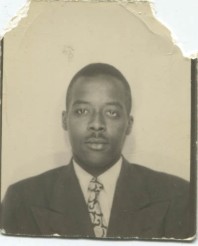In the years when disco first flourished in New York and Miami, I was a high-school punk and I hated disco in the same unreasoning way I hated the Grateful Dead. For me, punk was the music of rebellion and refusal, the music for angry girls who didn’t want to put on high heels and glittery makeup, who weren’t going to smile as we whirled around in graceful unison. It was the music for me. If I had been paying attention, I might have noticed that the jocks, deadheads, stoners and preppies for whom I had so much disdain hated disco too. In fact, lots of white people hated disco. They organized boycotts of radio stations that played disco music as part of their Top 40 programming. They wore their Disco Sucks teeshirts proudly. They gathered in their thousands and tens of thousands to burn disco records in Boston, Chicago, and smaller cities; one disco bonfire in July 1979 damaged Cominsky Park’s field so badly that a Cubs game had to be cancelled.
In my home town, our punk scene was tiny and fragile. Like disco, punk styles enraged the kinds of people who could be enraged by gender nonconformity. We kept a wary eye on who walked in to the one club we had made our own, and we learned not to walk back from the bars alone. We made friends with the sex workers and junkies – most of them drag queens – who shared the club’s bathrooms and the sidewalks with us. And, because there were so few of us, we embraced a do-it-yourself ethos in which everyone contributed to the scene, one way or another.
For example, there was Forrest, who was a little older than the high-school punk crowd and so seemed like an adult to me. He sang songs he wrote for anyone who would listen but he supported himself by making and selling buttons – you know, the kinds of pins you added to your leather jacket, with slogans and pictures. For years afterward, I wore a Patti Smith button that Forrest had made. (Truthfully, I bought it long before I ever heard her music. It was her style that counted.) Forrest sold his wares most afternoons on a corner halfway between the bar where the music was and my father’s apartment where I stayed most nights, and my sister and our friends and I hung out with him there sometimes.
One afternoon, hanging out on the corner, I asked Forrest if he would make a Disco Sucks button for me. And Forrest – sweet, spacey, gentle Forrest – yelled at me. WHY WOULD I DO THAT? he said. ARE YOU A GODDAMN RACIST? ONLY RACISTS HATE DISCO!
I don’t remember how I responded. Probably I was all blustery and defensive. Probably I was a big jerk about it. You know how white people get. I was a fifteen-year-old white girl and I was as ignorant as a fifteen-year-old white girl could be.
But within a year, I was taking my first tentative steps into the only gay bar in my home town. And of course the music in that bar was the same as the music in every gay bar everywhere: disco. I wasn’t yet ready to listen to it thoughtfully. Years later I could notice how disco inverted the rock instrumentation I was accustomed to. The high-pitched strum of the electric guitar carrying the rhythm while the bass guitar and low-pitched horns conveyed the melody, and women’s voices sang out their desires (“It’s raining men, hallelujah!”) while male singers positioned themselves as desirable objects (“You make me feel mighty real”): truly queer music to a rock fan’s ears. But thanks to Forrest the Button Man’s willingness to engage with my racism, I was at least able to enter that bar with Chic and Sylvester on the jukebox; I couldn’t use my disdain for others’ tastes and styles to paper over my fear and self-loathing; I was able to imagine returning.
Long before there were sitcoms and community centers for us queers – as long ago as the early nineteenth century, as many historians have documented* – we gathered in bars and nightclubs, dance halls and discotheques. Those were, of course, spaces for sex, friendship, and romance. Often they were places where we could engage with each other across lines of class, generation, and race. And they were, simultaneously, spaces where we built our communities and defined our identities. I am going to go out to a solemn candlelight vigil tonight in honor of my sisters and brothers who died in Orlando last night. But you know what we should be doing? We should be dancing.
*ask me for a reading list. Go on, ask me.
 It’s June. (Is it still June?) Father’s Day is on the horizon or in the rear view mirror. There are years when I don’t think about it because, well because my dad died in 1998. It’s not that I’m altogether used to his being gone, but it’s a fact now, not an active grief. I miss him still, but not every day, probably not even every month now.
It’s June. (Is it still June?) Father’s Day is on the horizon or in the rear view mirror. There are years when I don’t think about it because, well because my dad died in 1998. It’s not that I’m altogether used to his being gone, but it’s a fact now, not an active grief. I miss him still, but not every day, probably not even every month now.